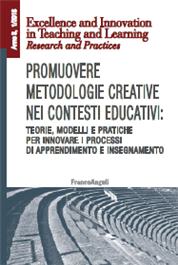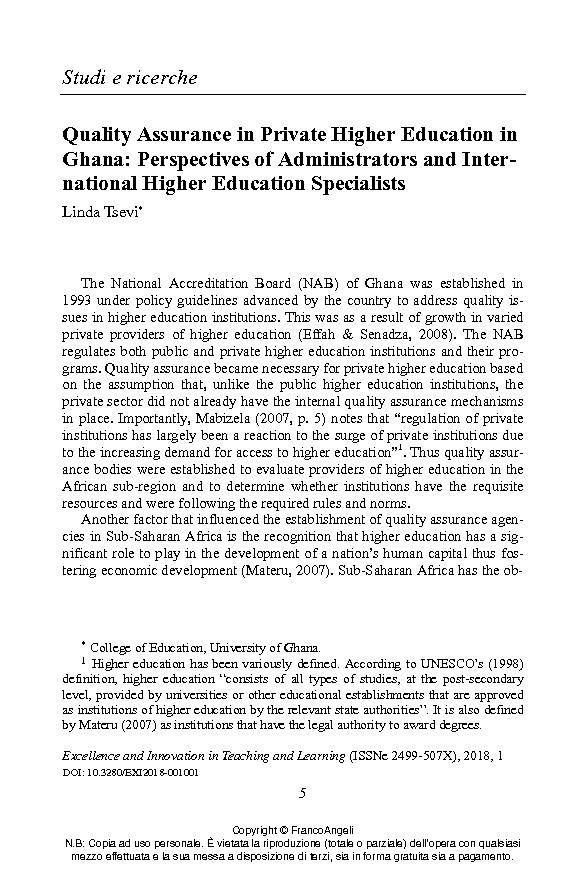Quality Assurance in Private Higher Education in Ghana : Perspectives of Administrators and International Higher Education Specialists
5-23 p.
College of Education, University of Ghana This paper examined private higher education in Ghana and the implementation of quality assurance procedures from the perspectives of administrators and international higher education specialists. Using the three main isomorphic classifications (coercive, mimetic and normative) of DiMaggio and Powell's (1983) institutional theory, this qualitative study explored how regulatory measures impact the efforts of private providers towards meeting quality assurance standards. Administrators from seven private higher education institutions in Ghana and three international higher education specialists were purposefully selected as sample for this paper.
The outcome of the open-ended interviews found evidence of efforts private institutions were making towards meeting their quality assurance requirements through mimetic, coercive and normative isomorphism. These were indicated through institutional affiliations and conformity to mentoring institution's educational programs among others. However, Ghana's private higher education landscape has a number of challenges that include mixed perceptions about the quality of educational programs offered that promoted learning, and varied influences on academic programs. These issues would require a holistic approach in order to find long lasting solutions. Further, the continual increase in private providers would require a quality assurance process that would promote genuine actors. [Publisher's text]
-
Articles from the same issue (available individually)
-
-
Information
ISSN: 2499-507X
DISCIPLINES



